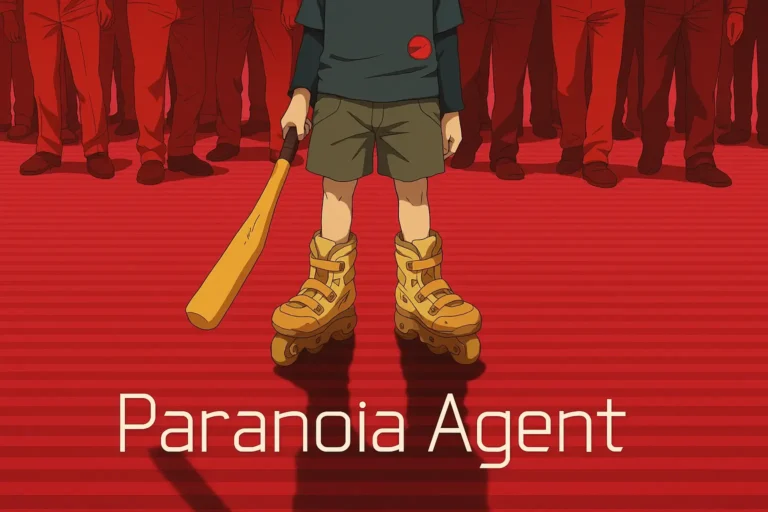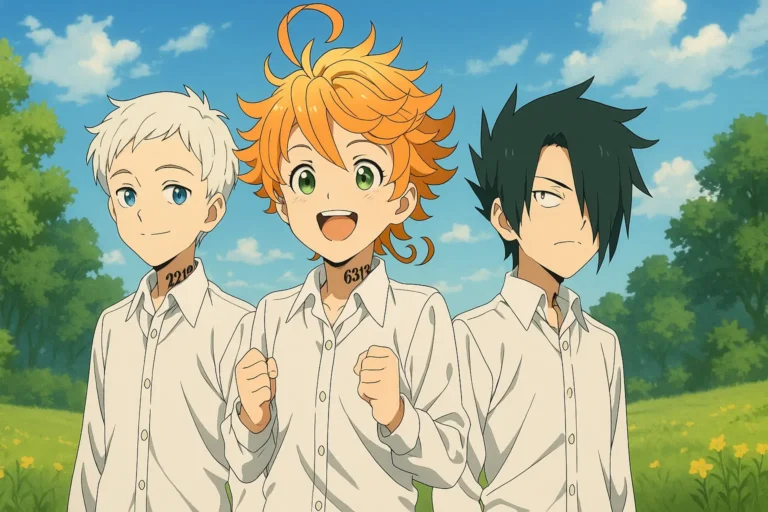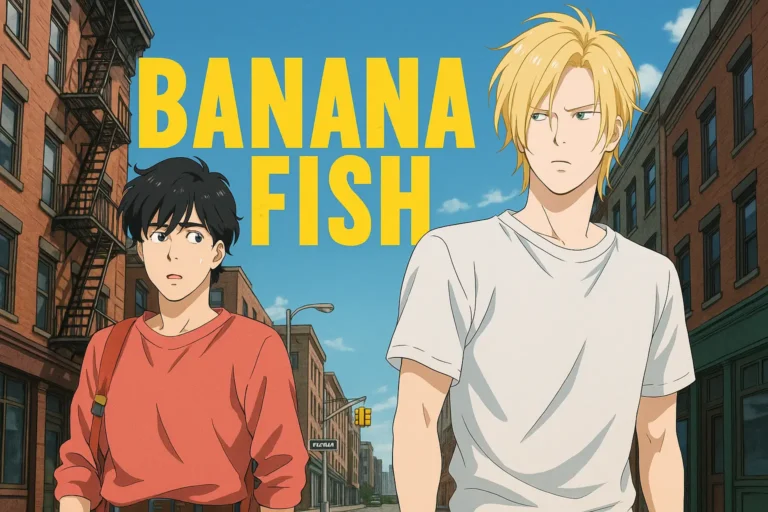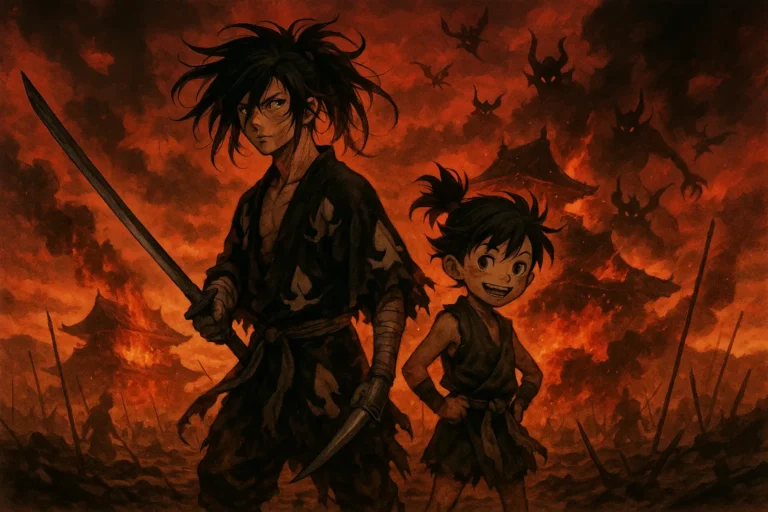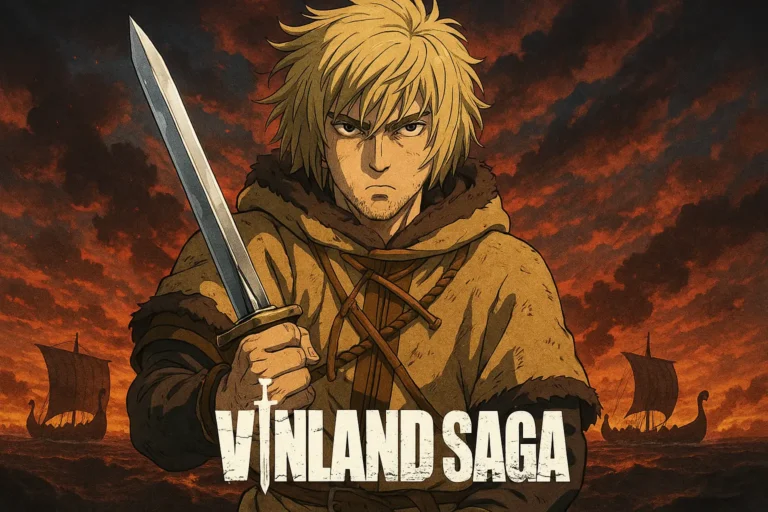The Rising of the Shield Hero: Redemption Through Betrayal’s Fire
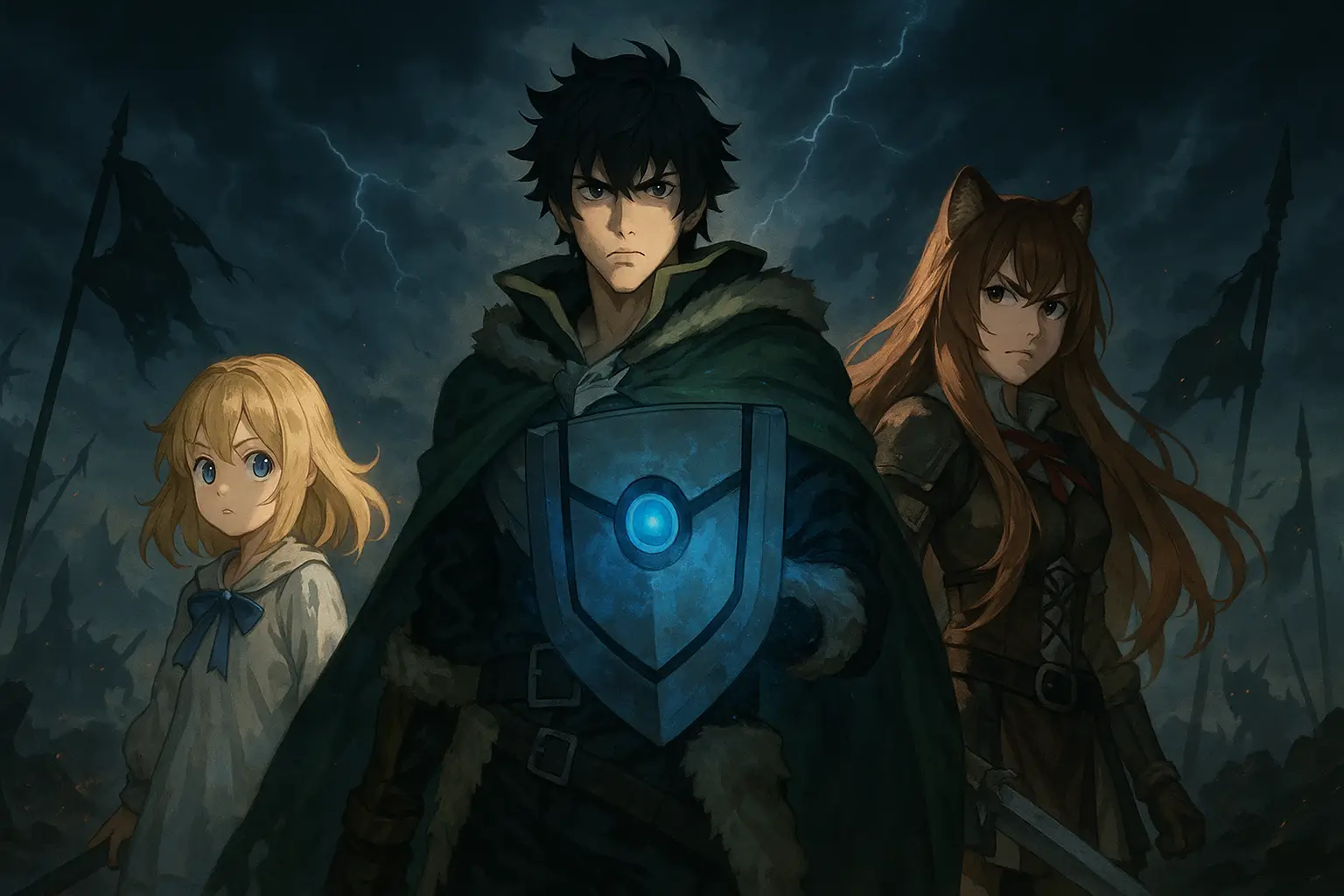
Table of Contents
Story Overview
In a world where ordinary people are periodically summoned as Cardinal Heroes to fight impending waves of catastrophe, university student Naofumi Iwatani finds himself transported to the kingdom of Melromarc as the Shield Hero. Unlike the other three heroes who wield offensive weapons, Naofumi is burdened with a defensive role that earns him immediate ridicule. His journey takes a devastating turn when his only companion betrays him, falsely accusing him of a heinous crime that strips him of his reputation, resources, and dignity.
Cast out and reviled by the very kingdom he’s meant to protect, Naofumi must rebuild from nothing, his heart hardened by betrayal. His path to becoming a true hero begins when he purchases a sickly demi-human slave girl named Raphtalia. What starts as a cold transaction evolves into something neither expected – a bond that might just save them both. As the waves of calamity intensify and political machinations unfold around him, Naofumi must overcome his bitterness to become the shield that protects a world that rejected him. But can someone betrayed by everyone learn to trust again?
Quick Facts
| Category | Details |
|---|---|
| Genre | Dark Fantasy, Isekai, Adventure, Drama |
| Episodes | Season 1: 25 episodes, Season 2: 13 episodes, Season 3: 12 episodes |
| Episode Duration | ~23 minutes |
| Age Rating | PG-13 (Some mature themes) |
| Production | Kinema Citrus (S1), DR Movie (S2/3), 2019-2023 |
| Source Material | Light Novel by Aneko Yusagi |
| Available On | Crunchyroll, Funimation, Amazon Prime |
Content Advisory (CAT)
Violence: Medium-High – Features combat scenes with monsters and humans, including blood and injury. Some sequences involve psychological torture and public humiliation. Not excessively graphic but contains intense battle sequences.
Language: Medium – Occasional strong language, particularly during emotionally charged scenes. Includes insults and threatening dialogue consistent with the darker tone of the series.
Sexual Content: Low-Medium – Contains some suggestive scenes and revealing outfits on certain characters. References to sexual crime as a plot point (false accusation) but no explicit content is shown.
Sensitive Themes: The series deals with slavery, false accusations of sexual assault, prejudice/discrimination, psychological trauma, child endangerment, political corruption, and religious manipulation. Some viewers may find the slave-master relationship problematic despite its development throughout the series.
Deep Insight
The Rising of the Shield Hero transcends typical isekai tropes by exploring the shadowed valleys of human experience – betrayal, prejudice, and the corrosive power of hatred. Like a shield forged in betrayal’s fire, Naofumi’s journey mirrors humanity’s struggle with injustice and the subsequent choice between embracing bitterness or rising above it. The series whispers a profound truth: true strength lies not in weapons that destroy, but in the willingness to protect despite personal cost. Through Naofumi’s evolution, we witness the delicate balance between justified mistrust and the necessity of vulnerability in healing. His shield becomes metaphorical – both a barrier against further pain and, paradoxically, the very thing that connects him to those worth protecting.
Standout Features
Subversion of Heroic Expectations
The series boldly flips the traditional hero’s journey on its head. Rather than beginning with an underdog who gains acceptance, Naofumi starts with complete rejection and must rebuild his identity from its shattered remains. This reversal creates a protagonist with genuine emotional scars that don’t heal conveniently for plot purposes, offering a refreshingly realistic portrayal of trauma and recovery.
Complex Character Evolution
Few anime capture character growth as organically as Shield Hero. Naofumi’s transformation from idealistic student to bitter outcast to reluctant protector feels earned rather than forced. Similarly, watching Raphtalia evolve from terrified child to confident warrior while retaining her emotional core provides a deeply satisfying character arc that avoids typical development shortcuts.
Morally Gray Landscape
The series excels in its refusal to paint characters as simply good or evil. Even the most detestable characters have comprehensible motivations, while heroes regularly make questionable choices. This ambiguity extends to systems of power, religions, and kingdoms, creating a world where viewers must constantly reassess their allegiances and judgments.
Compelling Power System
The cardinal weapons operate on rules that feel consistent and meaningful. Unlike many fantasy series where power-ups seem arbitrary, Naofumi’s shield evolutions connect directly to his experiences and choices. The emphasis on defensive capability forces creative problem-solving rather than simplistic power escalation, resulting in more strategically interesting battles.
Found Family Dynamics
At its heart, Shield Hero is about building connections after devastating betrayal. The makeshift family formed by Naofumi, Raphtalia, and Filo provides emotional resonance without falling into saccharine territory. Their bonds feel earned through shared hardship, creating moments of genuine warmth amidst the series’ darker elements.
Shortcomings
Uneven Pacing
The narrative suffers from inconsistent momentum, particularly in its second season. Some arcs drag with excessive exposition while others rush through potentially impactful moments. This unevenness can make the viewing experience frustrating, especially when compared to the tighter storytelling of the first season.
Diminishing Stakes
As Naofumi gains allies, equipment, and recognition, the series struggles to maintain the compelling underdog tension that defined its early episodes. Later antagonists often feel less threatening than the societal rejection and resource limitations that made the initial arcs so gripping. The show sometimes relies on increasingly convoluted plots rather than the emotional core that made it special.
Problematic Elements
The slave-master relationship between Naofumi and Raphtalia, while eventually developed into something more nuanced, remains uncomfortable. Though the series attempts to address this by emphasizing choice and mutual respect, the power dynamic raises questions that the narrative doesn’t fully reckon with. Additionally, some female characters are reduced to their attraction to Naofumi, undermining otherwise strong characterization.
Recommended For
This anime will particularly appeal to:
- Fans of darker isekai who are tired of overpowered protagonists and wish fulfillment narratives
- Viewers who appreciate character-driven stories with genuine emotional stakes
- Those who enjoy strategic battle scenarios rather than pure power escalation
- Watchers who appreciate moral complexity and sociopolitical elements in their fantasy
- Anyone drawn to themes of resilience, found family, and redemption
Not recommended for:
- Those seeking light-hearted, comedic isekai adventures
- Viewers uncomfortable with themes of betrayal, discrimination, and social rejection
- Audiences who prefer straightforward heroes and villains without moral ambiguity
Final Verdict
Rating: 7/10
The Rising of the Shield Hero earns its place as one of the more thought-provoking isekai series of recent years. Despite its flaws in pacing and some problematic elements, it delivers a compelling emotional journey that challenges conventions of the genre. The first season particularly stands as a masterclass in building investment in a protagonist’s struggle against overwhelming odds. While later seasons don’t quite maintain this height, the series remains a cut above standard isekai fare thanks to its willingness to explore darker themes with nuance and its commitment to character development that feels earned rather than arbitrary. For viewers willing to engage with its more challenging aspects, Shield Hero offers a rewarding experience that lingers long after the final episode.
Frequently Asked Questions
Does The Rising of the Shield Hero get less dark after the beginning?
While the tone slightly lightens as Naofumi builds relationships and gains allies, the series maintains its darker themes throughout. The narrative continues to address betrayal, political corruption, and prejudice, though it balances these with moments of growth and connection among the core cast.
Is the light novel better than the anime?
The light novel offers more detailed world-building and character development, particularly in later arcs. However, the anime’s first season is widely considered a faithful and compelling adaptation that captures the essential emotional core of the story. Later seasons compress more material, making the light novel preferable for those wanting the complete experience.
Will there be a Season 4?
As of October 2024, a fourth season has not been officially announced. However, given the popularity of the series and the availability of source material, further adaptation remains possible.
How does Shield Hero compare to other popular isekai anime?
Unlike many isekai protagonists who quickly become overpowered, Naofumi’s growth is more gradual and hard-won. The series places greater emphasis on psychological and social challenges rather than solely power acquisition. It’s generally darker and more politically focused than series like “That Time I Got Reincarnated as a Slime” but less brutally grim than “Re:Zero.”
Is the English dub worth watching?
The English dub is generally well-regarded, with particularly strong performances for Naofumi and Raphtalia. Both sub and dub versions effectively convey the emotional core of the series, making this largely a matter of personal preference.

